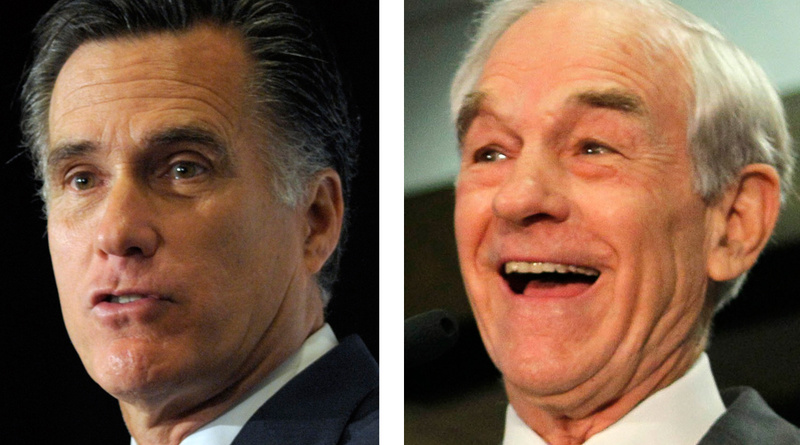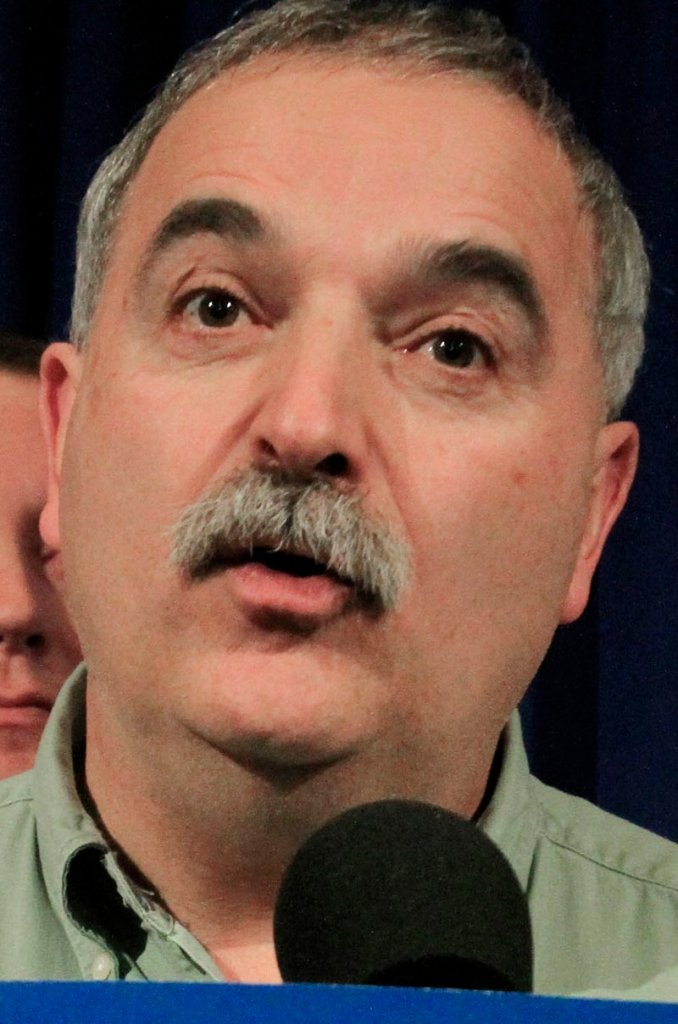AUGUSTA — Republicans are pressuring their party’s leaders for a recount of Mitt Romney’s narrow victory over Ron Paul in Maine’s closely watched Republican caucuses.
And some say it may be time to get rid of Maine’s quirky process for selecting presidential candidates and switch to conventional primary elections – with voting booths and counting machines.
“If we are to do a primary, we need to bring that up before the Legislature,” said Kim Pettengill, a Republican State Committee member representing Kennebec County. “I, for one, am going to see if we can do that, (and) I’ve talked to other people who feel the same way.”
The close race between Romney and Paul and the high stakes for both men drew national attention to Maine’s caucuses, which culminated Saturday with the announcement of Romney’s victory. He had 39 percent of the nonbinding vote to Paul’s 36 percent, according to the official count.
But the attention has since focused on counting errors, underreporting by some communities and a decision not to count voting that was postponed by snow in Washington County.
The party’s state chairman said he is confident that a recount would not change the results. However, the problems are reinforcing suspicions about the caucus system that existed long before this year’s voting was complete.
At Westbrook’s caucus Feb. 5, for example, Ron Paul’s supporters made a motion to require the chairwoman of the meeting to hold on to the ballots so they could inspect them later and verify the count.
A group of Romney supporters made a similar motion at a different caucus, said Charlie Webster, chairman of the Maine Republican Party.
Webster has taken the brunt of national criticism from Paul supporters and others for announcing results Saturday before all of the votes were counted. He and his wife have received death threats, he said, as have Republican officials in Washington County who decided to postpone Saturday’s caucuses there because of a snowstorm. The caucus will be held this Saturday.
A typical turnout in Washington County – about 110 to 120 voters – would not be enough to change the official outcome. Romney had 194 more votes than Paul, according to the official count.
But things changed when the county was left out of the official results, said Senate President Kevin Raye, a Republican from the Washington County town of Perry.
“Everybody that I’ve talked to in Washington County is frustrated that our votes can’t count,” Raye said. “I predict that this turnout will be greater.”
Raye said he personally urged Webster to recalculate the votes after this weekend’s Washington County caucus. Even if the party doesn’t add the numbers up, everybody else will, Raye said.
However, only state party officials now know the correct numbers to add up.
Some communities didn’t report their numbers in time to be counted Saturday, while others did report but were not included because of clerical or computer problems in the rush to calculate the winner, Webster said.
Waterville’s caucus results, for example, were reported but not counted in the state’s total. Paul beat Romney 21-5 in Waterville, according to numbers provided Tuesday by the Kennebec County Republican Committee.
There also were a few cases of incorrect numbers being entered into the official breakdown, Webster said.
“I wish it was 100 percent trouble-free, but we don’t have the staff or the money,” he said.
Webster would not release corrected totals Tuesday. He said he does not want to issue new numbers until the state committee meets to discuss the issue March 10.
“My position is, it doesn’t matter,” Webster said. “(The outcome) didn’t change at all.”
The caucus vote is a nonbinding preference poll, he noted, and the Maine delegates who are elected to go to the national convention will ultimately decide whom to support.
Paul Madore, state chairman of the Ron Paul campaign, said the refusal to change the vote count shows the bias in Maine’s Republican Party against conservatives, and could further disenfranchise them.
“Those who control the party in terms of its authority are at odds with its base, which is conservative,” Madore said.
Some Republicans, meanwhile, would like this presidential caucus to be the last. Maine’s caucus process has generated confusion in past years.
In 1988, after Republican presidential candidate Pat Robertson mounted a caucus challenge against George H.W. Bush, the Maine Legislature considered a switch to primary voting as a way to increase participation and make the process harder for any one candidate to manipulate.
In 1992, the Democratic caucuses generated discussion when Jerry Brown challenged the official results, giving Paul Tsongas a narrow victory.
The Legislature has stuck with caucuses mostly because of the potential cost of holding an additional statewide election.
“This isn’t the first (caucus controversy), although this one has certainly caused the biggest uproar,” said Pettengill, the state committee member from Kennebec County.
While Democrats now hold all of their caucuses on the same day – Feb. 26 this year – Republicans leave the scheduling up to local committees and set new rules every four years.
“It’s confusing for all of us, even for those of us who have been around,” Pettengill said.
She said she and others will push for another debate in the Legislature about whether to switch to primary voting.
“I am a strong advocate of a presidential primary,” she said, “because of something like this and because everybody’s voice should be heard.”
Staff Writer John Richardson can be contacted at 620-7016 or at: jrichardson@mainetoday.com
Send questions/comments to the editors.



